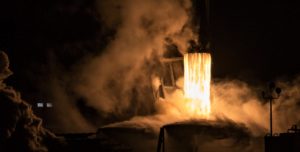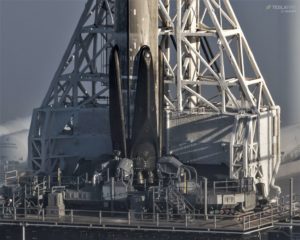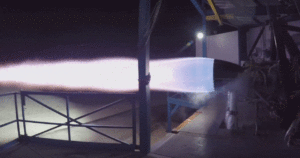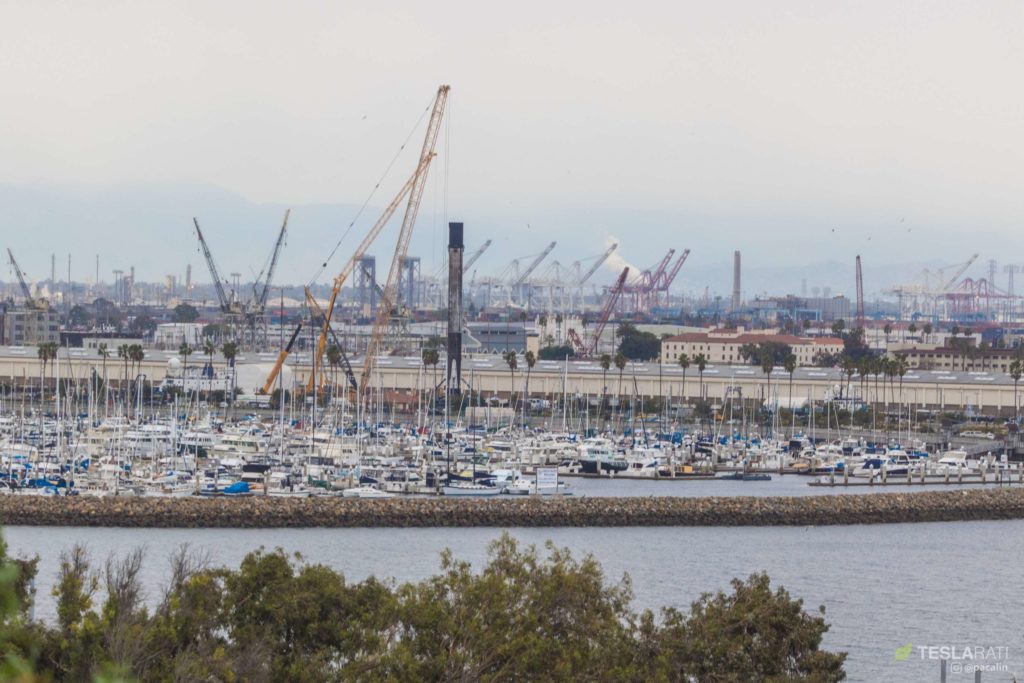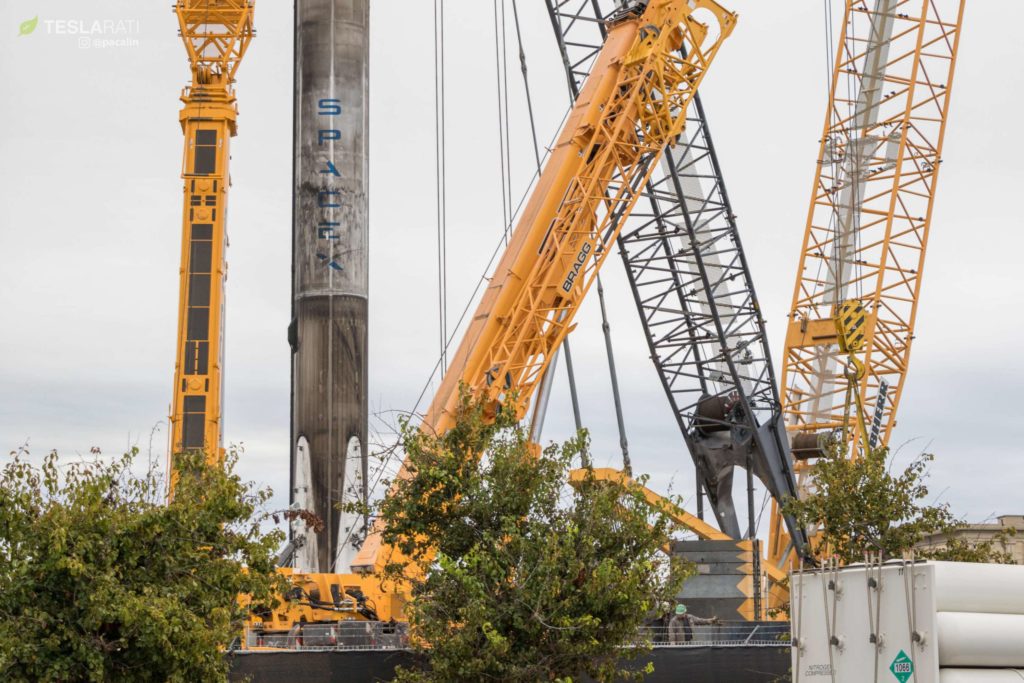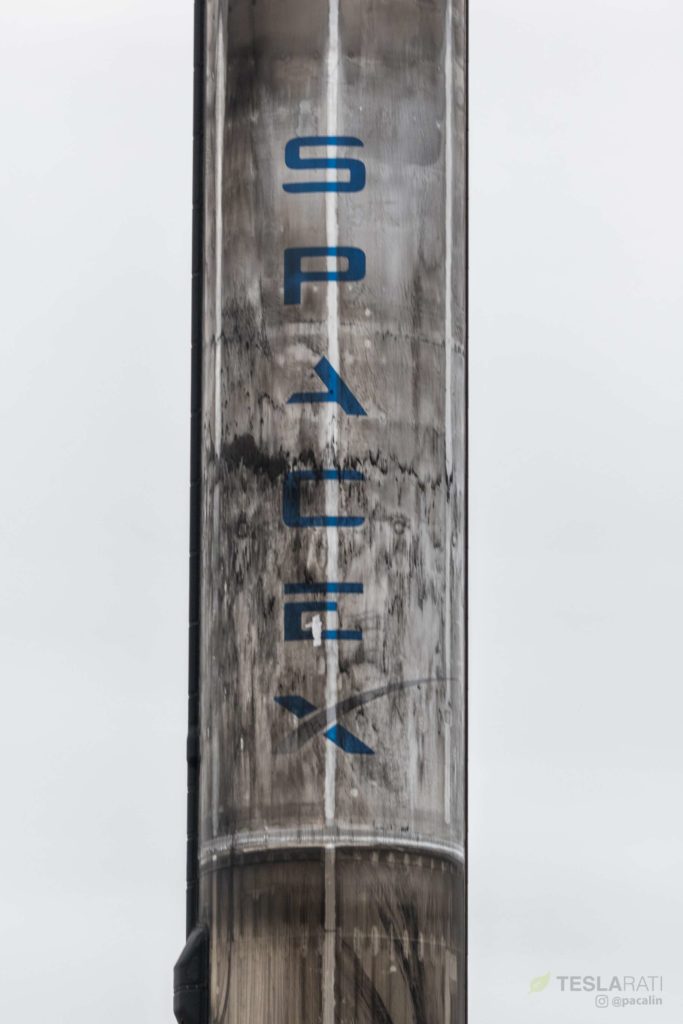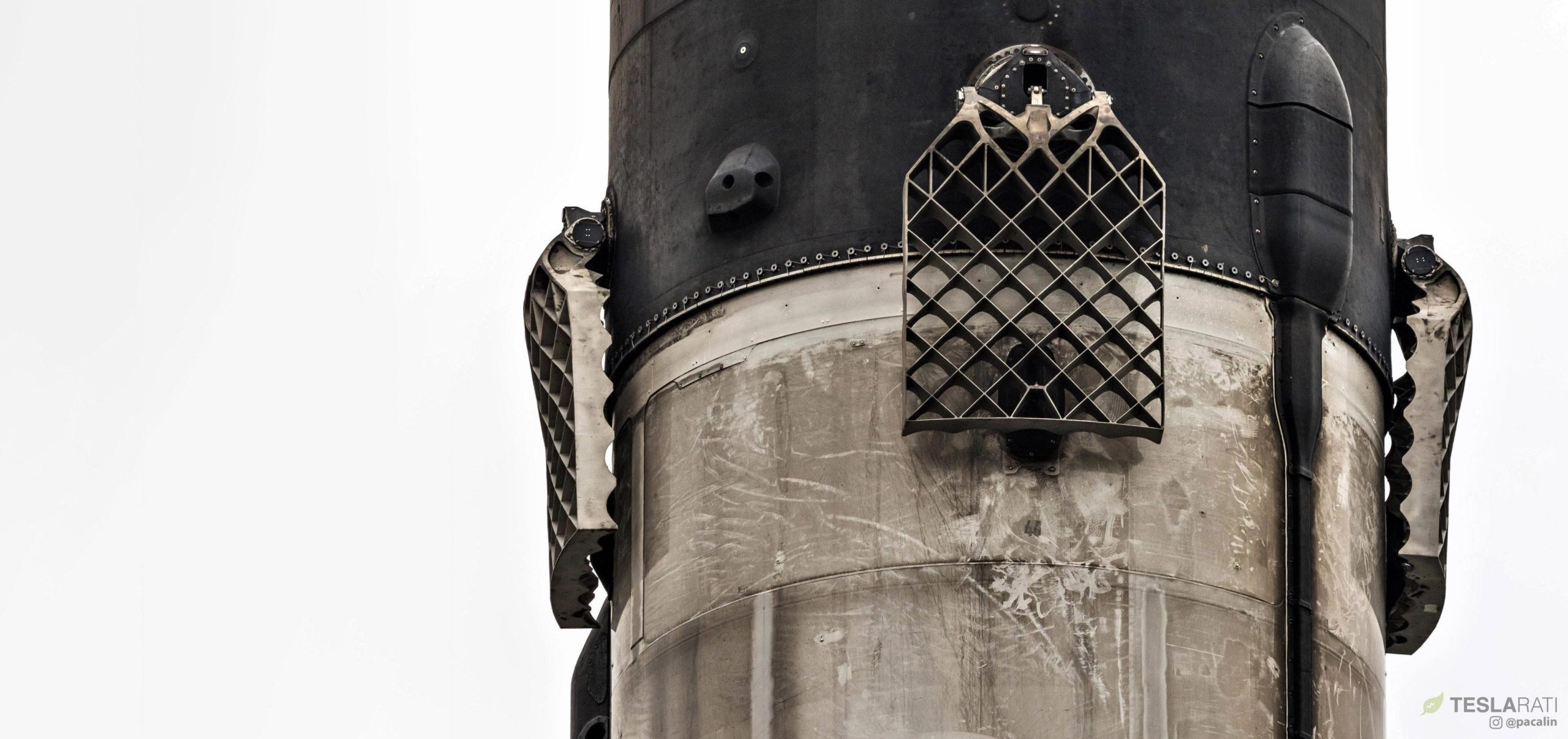
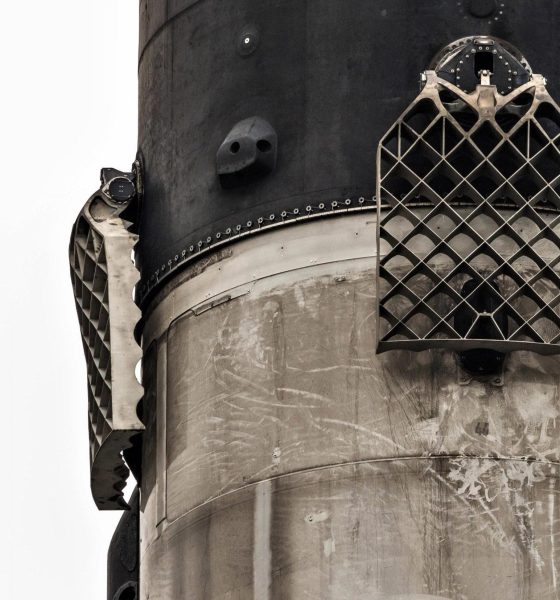
News
SpaceX Falcon 9 booster sails into port after historic third launch and landing
Although a sister rocket did not fare nearly as well during a separate landing attempt 48 hours later, SpaceX Falcon 9 Block 5 booster B1046 nailed its third successful launch and landing on December 3rd and arrived in Port of Los Angeles a bit less than 48 hours later.
Greeting the rocket after its milestone third reuse was a rare Los Angeles rainstorm, lending a lovely reflective sheen to all uncovered surfaces as low clouds and an obscured sun bathed everything in a stark and uniform off-white light.
That’s one scorched booster, still standing on JRTI at the moment, in the rain. B1046.3 arrived back at port earlier this morning after launching and landing for the 3rd time during the SSO-A mission. What. A. Sight. #spacex pic.twitter.com/EhHY9HK9cD
— Pauline Acalin (@w00ki33) December 5, 2018
It is difficult to conceive of a set of conditions that might serve to better emphasize the well-worn patina of soot and charring now fully covering the once-shiny white exterior of B1046’s fuel and oxidizer tanks, a sort of literal badge of honor for the three orbital-class launches the booster has now supported in the last six months. Functionally speaking, cleaning a Falcon 9 booster from top to bottom would be an unbelievably tedious, time-consuming, and largely pointless task, requiring careful spot-cleaning of something like 400 square meters (4300 square feet).

While SpaceX did repaint recovered Falcon 9 boosters a handful of times around the start of commercial reflights, it always served more of an aesthetic purpose over anything seriously utilitarian. Furthermore, aerospace-grade paint like that used by SpaceX is quite heavy potentially weighing several hundred kilograms per booster and requiring a week at minimum to fully apply a new coat. Some followers like to point out the lost benefits of Falcon 9’s reflective white paint, serving as a mild thermal insulator for Falcon 9’s tanks when filled with supercool propellant. While it certainly exists, the additional heating induced by soot coatings is completely negligible for Falcon 9, which is constantly topped off with chilled propellant prior to launch.
As such, sooty boosters will be around as long as the kerolox-power Falcon family remains in operation. Not too long from now, shiny new Falcon rockets will likely be as rare as the expendable rocket launches they partially represent – the launch vehicles of the future will be rugged workhorses more comparable to the 737s that fill the ranks of airliner fleets than to single-use works of art. Nevertheless, soot is by no means an innate feature of rockets, reusable or otherwise, instead deriving from Falcon 9’s pragmatic choice of kerosene as fuel – soot is simply an inevitable byproduct of kerosene combustion.
- Falcon 9 B1049 lifts off for the first time at SpaceX’s LC-40 pad in September 2018. (Teslarati)
- B1048 bares its sooty skin the morning before launch. (Pauline Acalin)
- A gif of Raptor throttling over the course of a 90+ second static-fire test in McGregor, Texas. (SpaceX)
- SpaceX’s subscale Raptor engine has completed more than 1200 seconds of testing in less than two years. (SpaceX)
A long and sooty future
Whenever it begins flying, the sole byproducts of the combustion of BFR/Starlink/Super Heavy’s methane-oxygen (methalox) propellant are water vapor and carbon dioxide, although true methane supplies will inevitably have slight impurities and thus cause the negligible production of some less pleasant byproducts. Raptor, the methalox rocket engine that will power BFR, has been performing hot-fire tests for more than two years, and the sheer differences between the exhaust of Merlin and Raptor are a striking example of the different chemistries at work. As a result of much cleaner combustion, BFR may produce no soot byproducts whatsoever – enjoy it while it lasts!
In the meantime, Falcon 9 will continue to fly and refly for the foreseeable future. B1046’s third successful launch and recovery is a huge step in that direction and the very fact that the most noticeable difference is a new coating of soot at least partially hints at the efficacy of Block 5’s reusability-minded upgrades. Even when twice-flown Block 5 octaweb heat shields are glimpsed, it’s all but impossible to tell the difference between an unflown or twice-flown example, while the new jet-black thermal protection on Block 5 interstages and octawebs only exhibit subtle scarring after reentry heating.
It almost goes without saying that the real killer in multi-use aerospace products – fatigue – is rarely visible to the naked eye, so the external appearance of Falcon boosters is more of a swoon-worthy placebo than anything else. Still, Falcon 9 Block 5 continues to demonstrate that its external appearance is almost equally indicative of truly robust reusability engineering.
- B1046. (Pauline Acalin)
- . . . (Pauline Acalin)
- ENHANCE! (Pauline Acalin)
For prompt updates, on-the-ground perspectives, and unique glimpses of SpaceX’s rocket recovery fleet check out our brand new LaunchPad and LandingZone newsletters!

Elon Musk
Tesla to increase Full Self-Driving subscription price: here’s when
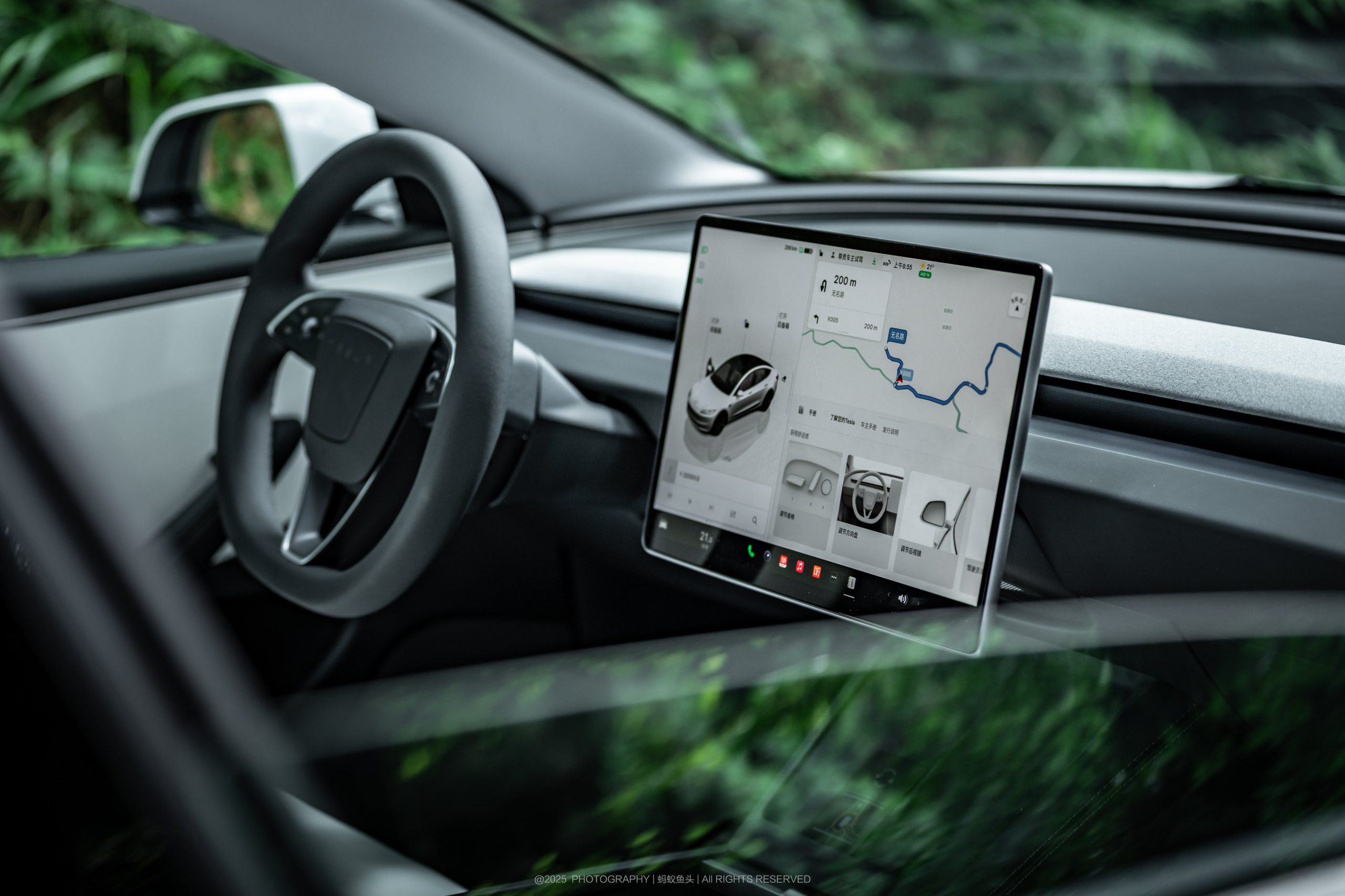
Tesla will increase its Full Self-Driving subscription price, meaning it will eventually be more than the current $99 per month price tag it has right now.
Already stating that the ability to purchase the suite outright will be removed, Tesla CEO Elon Musk said earlier this week that the Full Self-Driving subscription price would increase when its capabilities improve:
“I should also mention that the $99/month for supervised FSD will rise as FSD’s capabilities improve. The massive value jump is when you can be on your phone or sleeping for the entire ride (unsupervised FSD).”
This was an expected change, especially as Tesla has been hinting for some time that it is approaching a feature-complete version of Full Self-Driving that will no longer require driver supervision. However, with the increase, some are concerned that they may be priced out.
$99 per month is already a tough ask for some. While Full Self-Driving is definitely worth it just due to the capabilities, not every driver is ready to add potentially 50 percent to their car payment each month to have it.
While Tesla has not revealed any target price for FSD, it does seem that it will go up to at least $150.
I should also mention that the $99/month for supervised FSD will rise as FSD’s capabilities improve.
The massive value jump is when you can be on your phone or sleeping for the entire ride (unsupervised FSD). https://t.co/YDKhXN3aaG
— Elon Musk (@elonmusk) January 23, 2026
Additionally, the ability to purchase the suite outright is also being eliminated on February 14, which gives owners another reason to be slightly concerned about whether they will be able to afford to continue paying for Full Self-Driving in any capacity.
Some owners have requested a tiered program, which would allow people to pay for the capabilities they want at a discounted price.
Unsupervised FSD would be the most expensive, and although the company started removing Autopilot from some vehicles, it seems a Supervised FSD suite would still attract people to pay between $49 and $99 per month, as it is very useful.
Tesla will likely release pricing for the Unsupervised suite when it is available, but price increases could still come to the Supervised version as things improve.
This is not the first time Musk has hinted that the price would change with capability improvements, either. He’s been saying it for some time. In 2020, he even said the value of FSD would “probably be somewhere in excess of $100,000.”
The FSD price will continue to rise as the software gets closer to full self-driving capability with regulatory approval. It that point, the value of FSD is probably somewhere in excess of $100,000.
— Elon Musk (@elonmusk) May 18, 2020
News
Tesla starts removing outright Full Self-Driving purchase option at time of order

Tesla has chosen to axe the ability to purchase Full Self-Driving outright from a select group of cars just days after CEO Elon Musk announced the company had plans to eliminate that option in February.
The company is making a clear-cut stand that it will fully transition away from the ability to purchase the Full Self-Driving suite outright, a move that has brought differing opinions throughout the Tesla community.
Earlier this week, the company also announced that it will no longer allow buyers to purchase Full Self-Driving outright when ordering a pre-owned vehicle from inventory. Instead, that will be available for $99 per month, the same price that it costs for everyone else.
The ability to buy the suite for $8,000 for a one-time fee at the time of order has been removed:
NEWS: Tesla no longer allows buyers to purchase FSD outright in the U.S. when ordering a pre-owned vehicle directly from inventory. Tesla now gives you the option to either subscribe for $99/month, or purchase FSD outright after taking delivery (available until February 14th). pic.twitter.com/1xZ0BVG4JB
— Sawyer Merritt (@SawyerMerritt) January 23, 2026
This is a major move because it is the first time Tesla is eliminating the ability to purchase FSD outright for one flat fee to any of its vehicles, at least at the time of purchase.
It is trying to phase out the outright purchase option as much as it can, preparing people for the subscription-based service it will exclusively offer starting on February 14.
In less than a month, it won’t be available on any vehicle, which has truly driven some serious conversation from Tesla owners throughout the community.
There’s a conflict, because many believe that they will now lose the ability to buy FSD and not pay for it monthly, which is an attractive offer. However, others believe, despite paying $8,000 for FSD, that they will have to pay more money on top of that cost to get the unsupervised suite.
Additionally, CEO Elon Musk said that the FSD suite’s subscription price would increase over time as capabilities increase, which is understandable, but is also quite a conflict for those who spent thousands to have what was once promised to them, and now they may have to pay even more money.
News
Tesla Robotaxi has a highly-requested hardware feature not available on typical Model Ys
These camera washers are crucial for keeping the operation going, as they are the sole way Teslas operate autonomously. The cameras act as eyes for the car to drive, recognize speed limit and traffic signs, and travel safely.
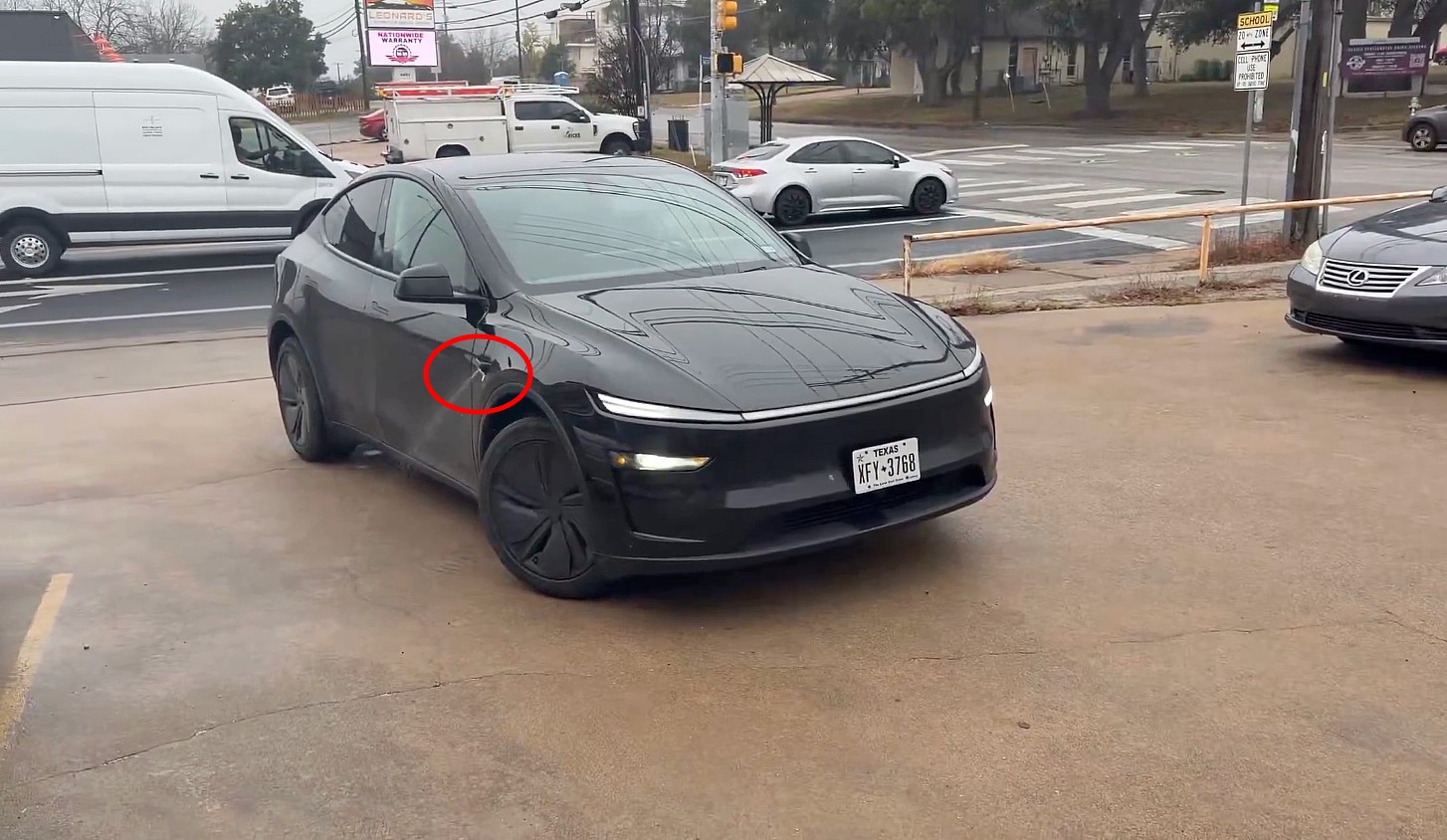
Tesla Robotaxi has a highly-requested hardware feature that is not available on typical Model Ys that people like you and me bring home after we buy them. The feature is something that many have been wanting for years, especially after the company adopted a vision-only approach to self-driving.
After Tesla launched driverless Robotaxi rides to the public earlier this week in Austin, people have been traveling to the Lone Star State in an effort to hopefully snag a ride from one of the few vehicles in the fleet that are now no longer required to have Safety Monitors present.
BREAKING: Tesla launches public Robotaxi rides in Austin with no Safety Monitor
Although only a few of those completely driverless rides are available, there have been some new things seen on these cars that are additions from regular Model Ys, including the presence of one new feature: camera washers.
With the Model Y, there has been a front camera washer, but the other exterior “eyes” have been void of any solution for this. For now, owners are required to clean them manually.
In Austin, Tesla is doing things differently. It is now utilizing camera washers on the side repeater and rear bumper cameras, which will keep the cameras clean and keep operation as smooth and as uninterrupted as possible:
🚨 Tesla looks to have installed Camera Washers on the side repeater cameras on Robotaxis in Austin
pic.twitter.com/xemRtDtlRR— TESLARATI (@Teslarati) January 23, 2026
Rear Camera Washer on Tesla Robotaxi pic.twitter.com/P9hgGStHmV
— TESLARATI (@Teslarati) January 24, 2026
These camera washers are crucial for keeping the operation going, as they are the sole way Teslas operate autonomously. The cameras act as eyes for the car to drive, recognize speed limit and traffic signs, and travel safely.
This is the first time we are seeing them, so it seems as if Safety Monitors might have been responsible for keeping the lenses clean and unobstructed previously.
However, as Tesla transitions to a fully autonomous self-driving suite and Robotaxi expands to more vehicles in the Robotaxi fleet, it needed to find a way to clean the cameras without any manual intervention, at least for a short period, until they can return for interior and exterior washing.
